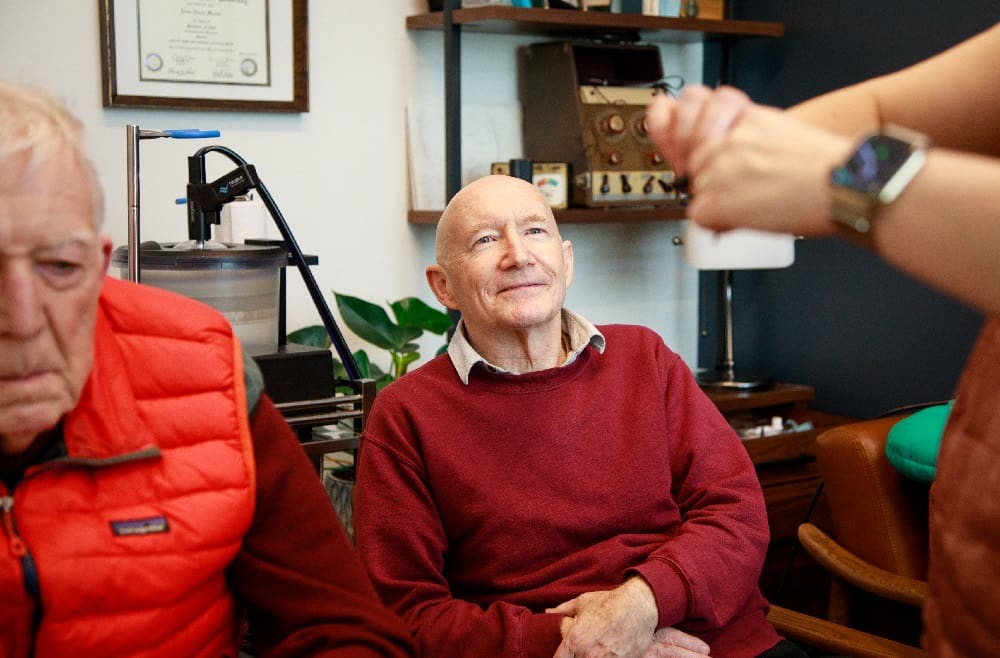2024-07-09
Rhonda Labib
Sometimes, hearing aids aren’t quite enough.
For those with severe to profound hearing loss, cochlear implants are an option to correct more major hearing loss challenges.
Cochlear implants are surgically implanted devices, serving to improve hearing and clarity by bypassing the damaged part of your inner ear and stimulating your hearing nerves directly.
There are a few misconceptions and concerns about cochlear implants—and they’re understandable, as this is a surgical implant that takes quite a bit of adjustment and getting used to. However, we’re here to alleviate some of those concerns and show the benefits that cochlear implants can bring for those with severe hearing loss challenges.
How Do Cochlear Implants Differ from Traditional Hearing Aids?
While hearing aids produce an acoustic signal, cochlear implants produce an electric one; we’ve had some people describe the sound quality at first as similar to hearing cartoon characters or Darth Vader speak!
Cochlear implants also take much longer to adjust to. The learning curve for cochlear implants is a little steeper.
Your brain is adjusting to hearing electronically, rather than acoustically—it’ll take some significant time, effort, and commitment to make the most out of an implant, up to a year of consistent training. However, it’s well worth it.
Improvements to be expected with cochlear implants will come with regular wear. At first, you may only hear various beeps and noises, which is entirely normal (so don’t panic!).
With time and practice, you can expect to gain sound awareness and a significant increase in clarity of speech. Familiar sounds and voices may not sound like you expected them to, but you’ll have more access to more sounds than you would with a hearing aid.
What Is the Process for Getting a Cochlear Implant?
One common misconception is that cochlear implant surgery involves brain surgery—it does not!
Cochlear implant surgery is a routine outpatient surgery that only involves the ear. It is performed under general anesthesia, meaning you will not be awake for any of it.
The surgeon will create an incision behind your ear, drill through the bone behind your ear, and insert an internal electrode throughout the cochlea, your hearing organ. It typically takes one to one and a half hours, and you can go home on the same day, although someone will have to drive you home.
Complications are rare; general risks from cochlear implant surgery include increased tinnitus, dizziness, a risk of infection, etc. A very uncommon risk is that the residual hearing in your ear could be wiped out with adaptation to the device.
However, the pros far outweigh the cons when it comes to cochlear implant surgery.
We’ve seen several patients singing its praises after adjusting to the new form of hearing, and with the help of the surgery and the device, they can hear the life they love once more.
Curious About Cochlear Implant Surgery?
If you’re looking into cochlear implant surgery for you or a loved one, then we’re happy to discuss your options and lead you in the right direction.
If hearing aids just weren’t quite enough, perhaps a more powerful solution could be the right thing to get you hearing the world around you once more.
Please feel free to request a callback for more information or to chat with a member of our team. For a more immediate conversation, you can always call our office at (510) 841-0681.
https://berkeleyhearing.com/wp-content/uploads/2024/07/Request-a-Callback.jpg
Rhonda Labib






